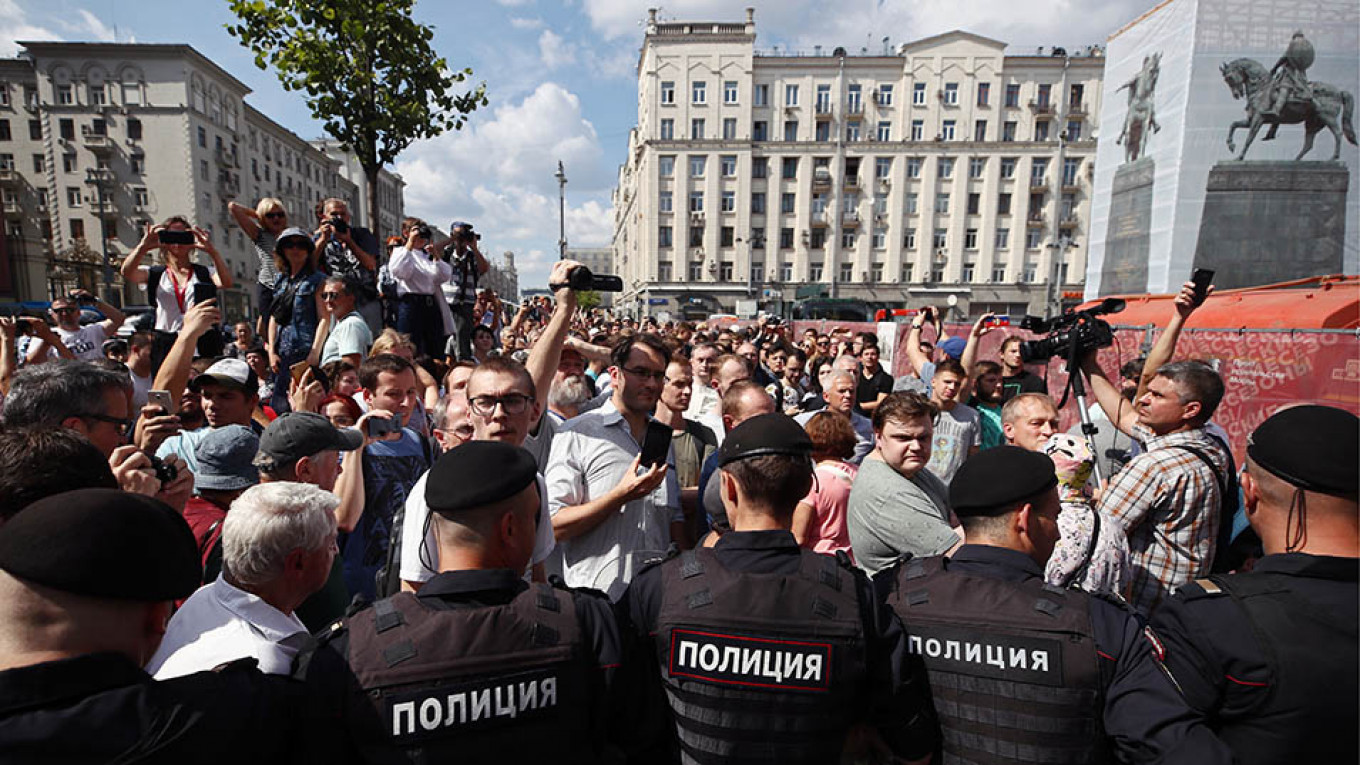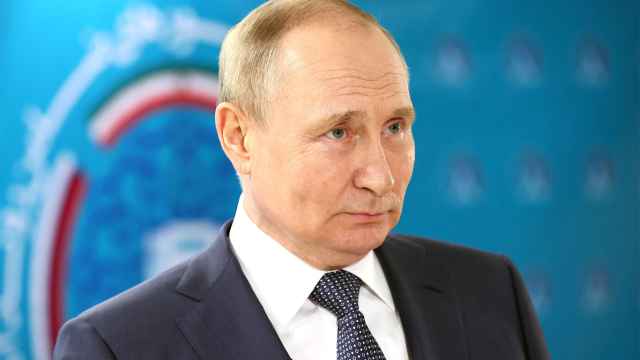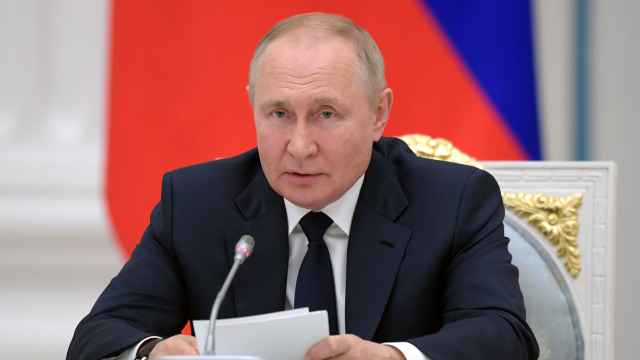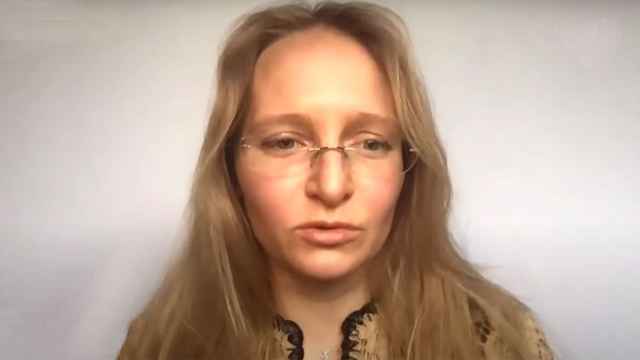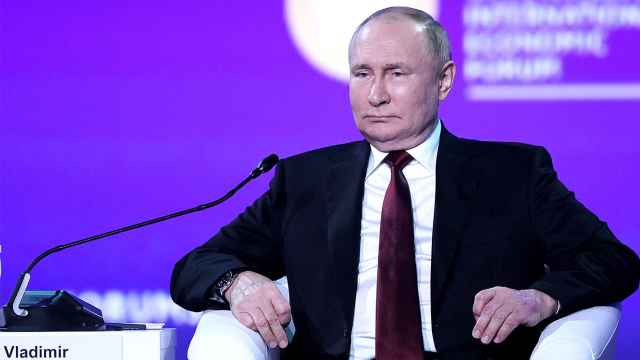In the five years that followed the 2011–2012 protests, the non-systemic opposition posed no threat to the Kremlin. Even its most prominent face, Alexei Navalny, lacked popular support and the backing of elites and faced fierce internal competition, seen as a pro-Western white-collar criminal by the public and suspected of collaborating with the authorities by fellow liberals. Other Kremlin critics simply did not rise to the level of national political figures.
Inside the Kremlin, Sergei Kiriyenko, the former prime minister who in 2016 became the presidential administration’s first deputy chief of staff, viewed the non-systemic opposition with scorn. They did not deserve a place in Russia’s political system, Kiriyenko felt, and for a while it seemed that official politics was protected from infiltration by non-systemic elements, who failed time after time to overcome barriers to participation such as the so-called municipal filter.
In 2017, two cracks appeared in this wall: street protests and municipal elections. More and more people were joining the former, and as local government lost much of its power, the Kremlin relaxed its control over municipal elections, inadvertently providing the non-systemic opposition with an opportunity to enter government, if only at a local level.
In September of that year, Muscovites elected around two hundred opposition candidates running for municipal office: a development without precedent in Russian political life made possible by the authorities’ underestimation of local government as a platform for the non-systemic opposition.
Electoral gains at the municipal level combined with growing street protests to turn the non-systemic opposition into a nascent force in Russia’s political system, a shift that the Kremlin found deeply disturbing, even as it continued to deny it in public.
Four years earlier, Navalny had run for mayor of Moscow and won 27 percent of the vote in an experiment with (managed) democracy seized on by President Vladimir Putin as an example of the danger of letting genuine opposition figures run in elections.
Putin apparently warned Moscow Mayor Sergei Sobyanin and Vyacheslav Volodin, Kiriyenko’s predecessor in the presidential administration, not to repeat their mistake, and there emerged an internal consensus that non-systemic opposition candidates should be barred from running for office, and unsanctioned protests forcibly dispersed.
In the case of the Moscow city council elections, which are scheduled for September 8, there was never a plan to register opposition candidates. Instead, the Moscow mayor’s office placed its bets on a few select civic activists, an approach that failed: the most prominent of these candidacies, that of palliative care expert Nyuta Federmesser, was withdrawn under pressure from other opposition activists.
Still, the authorities remain divided on tactical questions. Should they allow liberals who have ties to the non-systemic opposition yet are open to compromise to run for office?
Should opposition activists be permitted to hold rallies? Should the authorities enter into negotiations with them? Should they admit mistakes in their verification of supporters’ signatures, which opposition hopefuls not nominated by a political party represented in the legislature in question are required by law to collect? Is it best to ignore opposition figures or to suppress them? To disperse them or to imprison them?
And, most importantly, who is responsible for this conflict and its consequences?
For now, the Kremlin and the Moscow authorities are busy passing the blame for this fiasco, unsure whose headache it really is. The deal had been that the presidential administration would allow the Moscow mayor’s office to run the September elections on the condition that it prevented the election of non-systemic opposition figures to the Moscow City Duma – and avoided scandal. Aware that any political conflict in the capital would automatically become national news and therefore the Kremlin’s problem, the Kremlin sought a quiet, uneventful vote.
It did not get its way. On July 27, thousands of Muscovites took to the streets to protest the non-registration of opposition hopefuls, dismissing the warnings of law enforcement and Sobyanin himself that those taking part in the unsanctioned demonstration would be prosecuted; a week earlier, more than 20,000 people had attended an authorized protest in support of the opposition, reportedly Russia’s largest since the Bolotnaya Square demonstrations in 2012.
The presidential administration insists that the conflict, which culminated last week in the detention of around 1,400 people and the jailing of numerous opposition hopefuls and opposition leaders — including Navalny — could have been avoided had the elections been centrally managed from the Kremlin. The Moscow mayor’s office, for its part, maintains its innocence. And the power structures, or siloviki, feel that it is long past time for the authorities to stop playing at democracy and suppress the non-systemic opposition for good. Meanwhile, Volodin’s camp has accused Sobyanin of mismanaging the elections, aware that as mayor of Moscow, Sobyanin is a possible pick for prime minister and thus a potential successor to Putin.
Indeed, the opposition hopefuls’ candidacies are not the only casualties of this crisis. Political insiders representing the presidential administration, the State Duma, and the siloviki have taken to channels on the secure messaging service Telegram to speculate about the embattled Sobyanin’s political future, predicting his collapse, purges, and even the prosecution of members of his team.
Some believe that the fiasco in Moscow was a provocation engineered by Sobyanin’s political rivals, who regard him as too autonomous and do not consider him one of their own. It is no surprise that those with designs on the Kremlin have taken advantage of this moment of vulnerability for Sobyanin. But it is unlikely that what has transpired in Moscow is a conspiracy against the Moscow mayor.
This state of disorder reflects the fact that the present crisis has no easy solutions. On the one hand, it seems inevitable that the authorities will have to make at least some concessions.
On the other, the only realistic concession — the registration of opposition hopefuls — is one that the Kremlin refuses to grant, meaning that the authorities will be forced to keep resorting to force and ceding responsibility for dealing with the challenge to the siloviki, further empowering Russia’s hardliners and narrowing the space for debate on how best to deal with the non-systemic opposition.
With the Federal Security Service now involved in the crackdown and the first criminal charges — of hindering the work of election commissions — already filed, Russia faces a repeat of the events of 2012, when the authorities responded to the Bolotnaya Square demonstrations by opening high-profile criminal cases against dozens of activists. The difference is that whereas the summer of 2012 found the protest movement in a state of decline and the authorities consolidated and steady, Russia is currently in a state of uncertainty.
These days, Kremlin favorites can lose elections, and the agenda is set at least in part by the non-systemic opposition. In such conditions, the criminal prosecution of opposition figures will merely spark more protests and swell the protesters’ ranks.
Putin’s inert regime is not prepared to engage in dialogue with the non-systemic opposition or to recognize it as a legitimate force, and is incapable of doing so. Faced with such inflexibility, protests will continue to strain the country’s political system, and as long as those in the presidential administration tasked with managing domestic politics fail to find instruments with which to de-escalate the situation, the response will be led by men in uniform.
The risk is that opposition activists will not be the only ones persecuted; those in power deemed soft on the internal enemy will be too.
This article was originally posted by Carnegie.
A Message from The Moscow Times:
Dear readers,
We are facing unprecedented challenges. Russia's Prosecutor General's Office has designated The Moscow Times as an "undesirable" organization, criminalizing our work and putting our staff at risk of prosecution. This follows our earlier unjust labeling as a "foreign agent."
These actions are direct attempts to silence independent journalism in Russia. The authorities claim our work "discredits the decisions of the Russian leadership." We see things differently: we strive to provide accurate, unbiased reporting on Russia.
We, the journalists of The Moscow Times, refuse to be silenced. But to continue our work, we need your help.
Your support, no matter how small, makes a world of difference. If you can, please support us monthly starting from just $2. It's quick to set up, and every contribution makes a significant impact.
By supporting The Moscow Times, you're defending open, independent journalism in the face of repression. Thank you for standing with us.
Remind me later.



